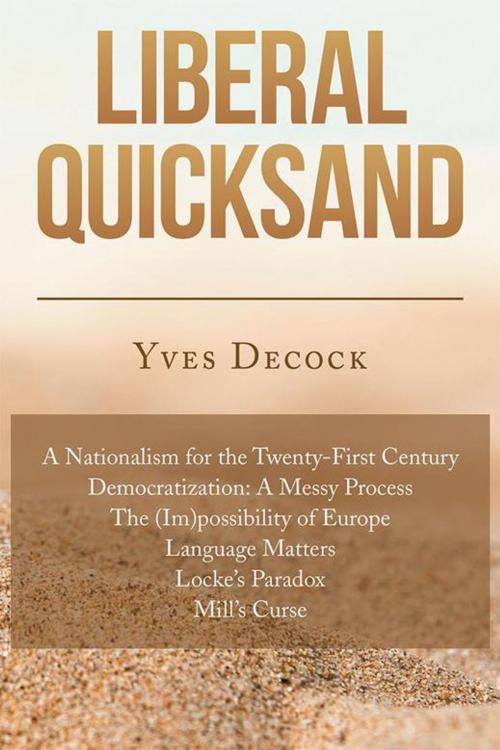Liberal Quicksand
Nonfiction, Social & Cultural Studies, Social Science, Cultural Studies, Ethnic Studies, Political Science, History| Author: | Yves Decock | ISBN: | 9781504997973 |
| Publisher: | AuthorHouse UK | Publication: | January 22, 2016 |
| Imprint: | AuthorHouse UK | Language: | English |
| Author: | Yves Decock |
| ISBN: | 9781504997973 |
| Publisher: | AuthorHouse UK |
| Publication: | January 22, 2016 |
| Imprint: | AuthorHouse UK |
| Language: | English |
According to a fairy tale, after World War II, Europe rejected nationalism and subsequently started the European project, which brought uninterrupted peace from 1945 on. In this book, this version of history is unmasked. First, Europe did not desert nor transcend nationalism after 1945. On the contrary, since 1800, the nationalist program, based on linguistic divisions, has been implemented continuously, also after the end of World War II. Not the rejection of the nationalist program but its nearly full implementation is the basis of the lasting peace in Europe since 1945. The delineation of linguistically homogeneous territories is the precondition to create a truly Lockean democracy. Second, nationalism is, by itself, in the first place a strong emancipatory force that is intrinsically connected with the liberal evolutions at the end of the eighteenth and the midst of the nineteenth century. A correct appreciation of the emancipatory role of nationalism and of the contribution of nationalism to the current structure of Europe is a necessity to be able to deal adequately with the issues the modern world is thrusting upon Europe and to assess the form a political entity Europe might take. The European experience raises the question whether another path is possible. Throughout its history, the USA has followed the European path and has remained fundamentally Anglo-Saxon until 1965. Since then, the USA is struggling how to deal with its multicultural and multilingual reality and hesitates between an English-only mode, following the European model or something else, currently still not yet clearly defined. And what are the implications of Europes history when applied to the Middle East or multinational states like China? Can they democratize without falling apart?
According to a fairy tale, after World War II, Europe rejected nationalism and subsequently started the European project, which brought uninterrupted peace from 1945 on. In this book, this version of history is unmasked. First, Europe did not desert nor transcend nationalism after 1945. On the contrary, since 1800, the nationalist program, based on linguistic divisions, has been implemented continuously, also after the end of World War II. Not the rejection of the nationalist program but its nearly full implementation is the basis of the lasting peace in Europe since 1945. The delineation of linguistically homogeneous territories is the precondition to create a truly Lockean democracy. Second, nationalism is, by itself, in the first place a strong emancipatory force that is intrinsically connected with the liberal evolutions at the end of the eighteenth and the midst of the nineteenth century. A correct appreciation of the emancipatory role of nationalism and of the contribution of nationalism to the current structure of Europe is a necessity to be able to deal adequately with the issues the modern world is thrusting upon Europe and to assess the form a political entity Europe might take. The European experience raises the question whether another path is possible. Throughout its history, the USA has followed the European path and has remained fundamentally Anglo-Saxon until 1965. Since then, the USA is struggling how to deal with its multicultural and multilingual reality and hesitates between an English-only mode, following the European model or something else, currently still not yet clearly defined. And what are the implications of Europes history when applied to the Middle East or multinational states like China? Can they democratize without falling apart?















